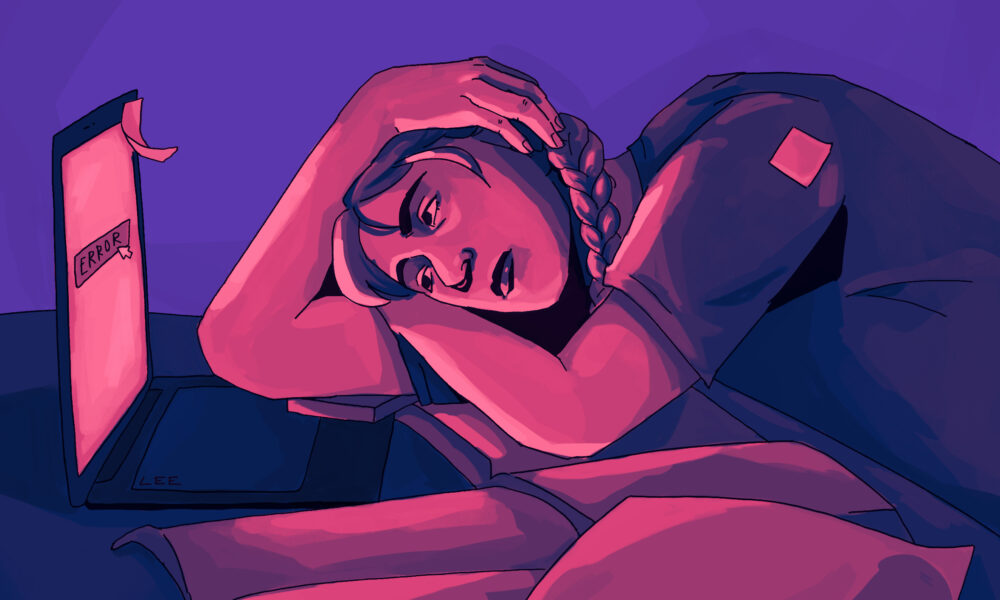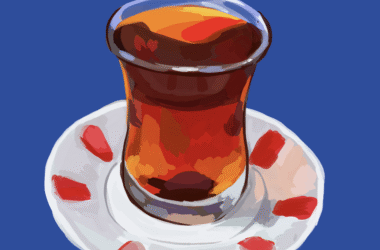Libraries are filled to the brim and dark circles are beginning to set in around students’ eyes: Finals season is almost here. Should we start studying or take some time to rest? It seems that even the weather can’t pick a side. Here are some tips to help manage stress and build a healthy study-life balance.
Maintaining healthy habits
During these tough times, it becomes tempting to eat whatever is most convenient—snacks, frozen meals, and take-out. But keeping your body healthy and happy is the first step toward better mental health. Filling your stomach to regain some energy is crucial, so eating frequently and enough should not be overlooked. Take time every day to have three consistent meals. One way to be efficient and save some money is to prepare meals ahead for the whole week so that you don’t need to spend time cooking every day. Budget Bytes gives wonderful tips on meal prepping.
Sleep is necessary to be productive; so, though it’s tempting, don’t pull an all-nighter. Instead, try to organize yourself with clear daily objectives and consistent sleeping hours in mind so that you have a game plan and don’t need to drastically disturb your sleep schedule.
Taking a breath of fresh air
This time of the semester is particularly hard because there is so much on our minds, whether it be facing academic deadlines, deciding what to do for the summer, or dealing with how to sublet your apartment while you’re away. Whatever it is, letting go of the stress on your shoulders is important for your productivity and mental health. Going for walks has been shown to have many health benefits, including reducing stress. Your brain needs air to function, and so do you. You can also go jogging if raising your heart rate seems like it would help you let off some more steam. No matter if you’re running or walking, put on your favourite playlist and take your mind off of schoolwork for a little while. A healthy study-life balance requires doing things that are not school-related—you might as well kill two birds with one stone by doing something good for both your mental and physical health.
Engaging with fellow students
Even though it might feel like you are alone, plenty of other students are in the same boat. If you start feeling overwhelmed with the amount of work you have while you’re sitting in the library, just take a look around. Talk to your friends who are undergoing the same struggles—it might not take anything off of your to-do list but at least it will make you feel understood. Don’t forget to chat about topics not related to your studies as well.
If you’re feeling like talking to someone who you don’t know who has been trained to help, the Peer Support Centre offers confidential and non-judgemental guidance from fellow students. Regardless of what you decide is best for you, don’t be scared to reach out for help and reassurance that you’re not alone—your mental health matters, and talking about it is not a weakness.
Looking ahead
The only thing you probably see on the horizon right now is finals. However, you might want to look beyond that. Even though the sun is shy and sometimes hides behind the clouds, it still makes the occasional appearance, reminding us of the arrival of summer. Whatever your summer plans are, the change in season will offer a new start, warmer weather, and hopefully. some much-deserved rest.
Students in crisis should contact Suicide Action Montréal at 1-866-277-3553. For an appointment with a doctor, wellness advisor, or mental health counsellor, students can contact case managers at the Office of the Dean of Students, call the Wellness Hub at 514-398-6017 Monday through Friday, or go to the Hub’s website for more information. To consult with the SSMU mental health commissioner, email [email protected].







